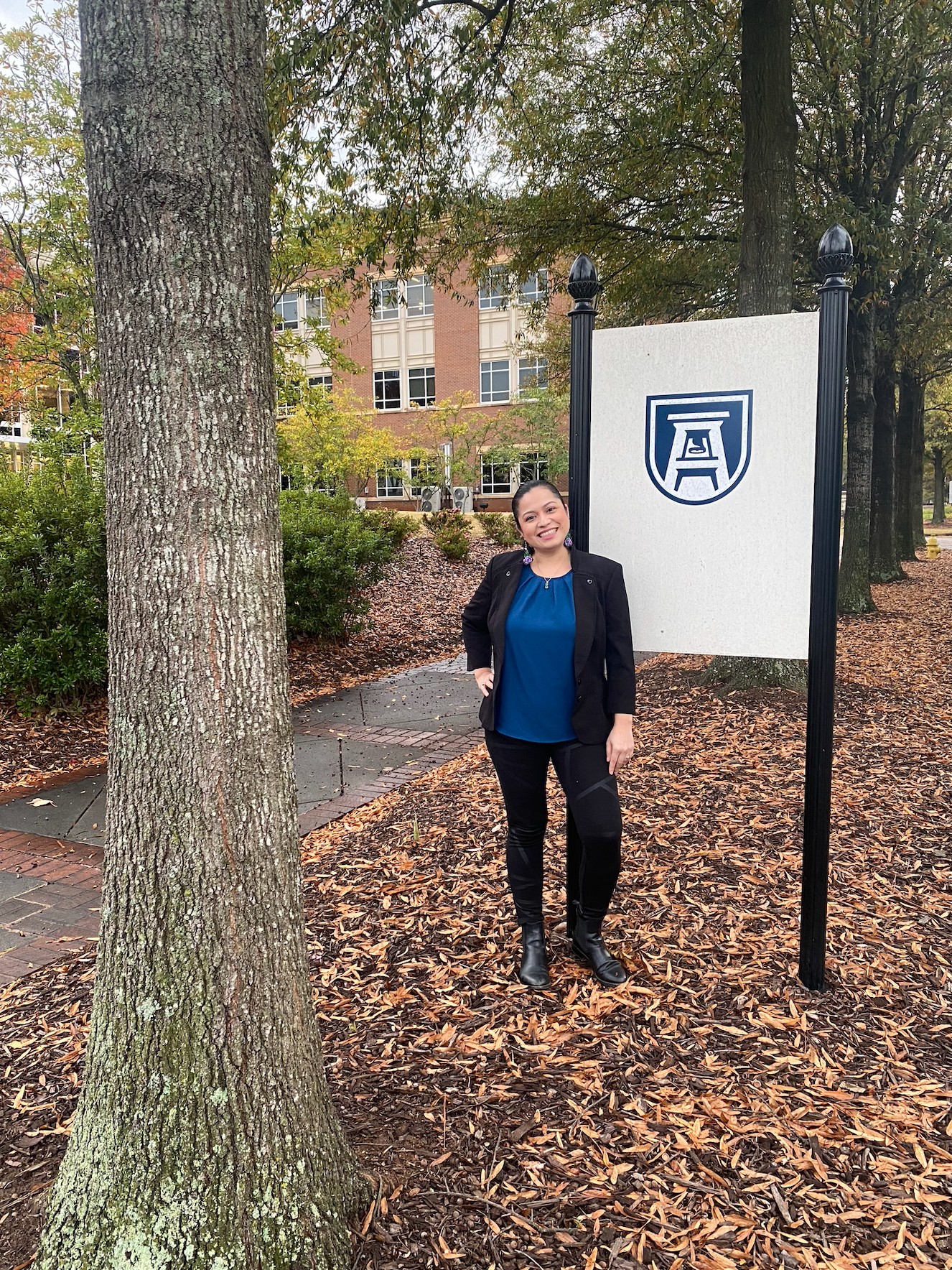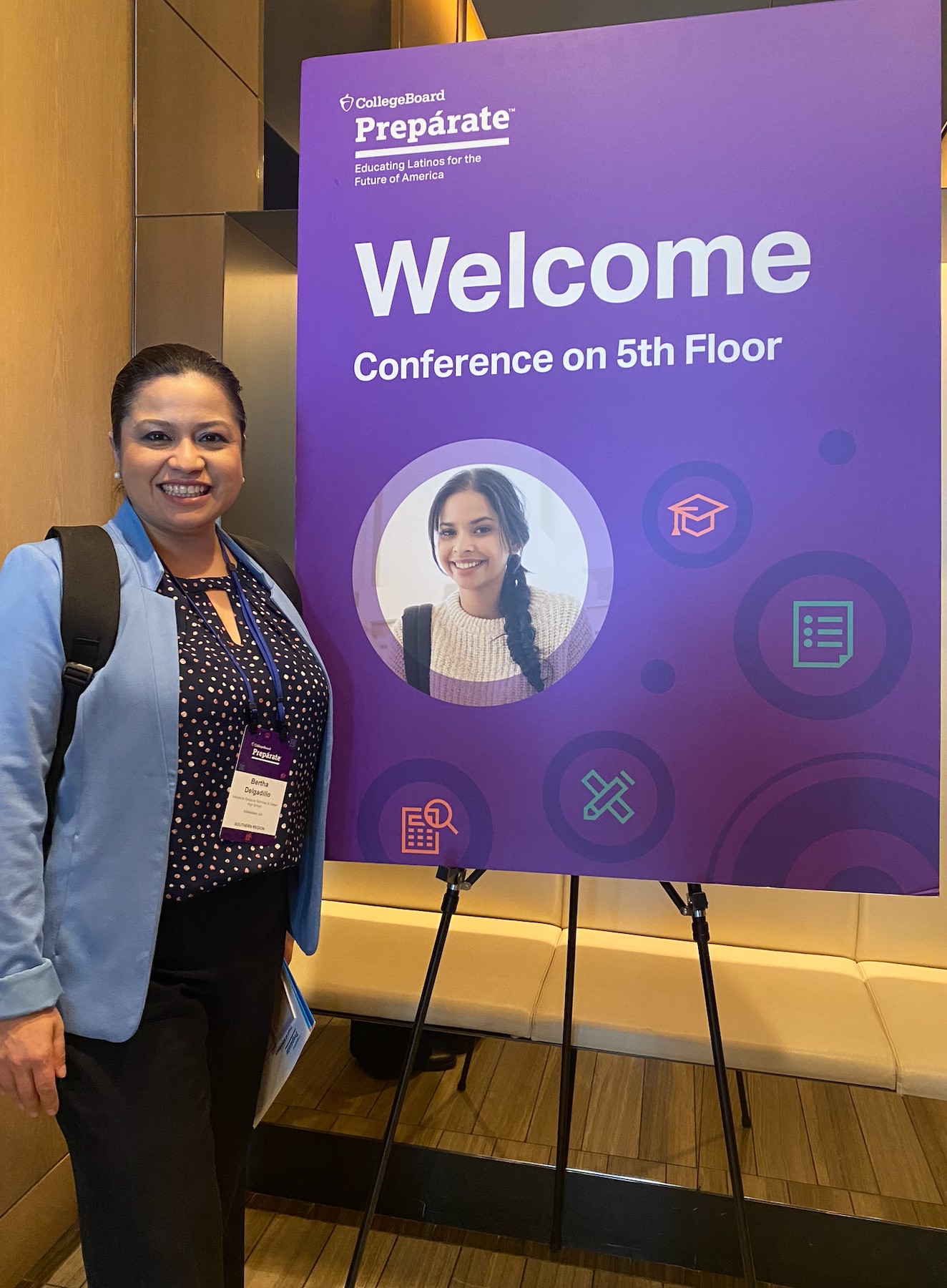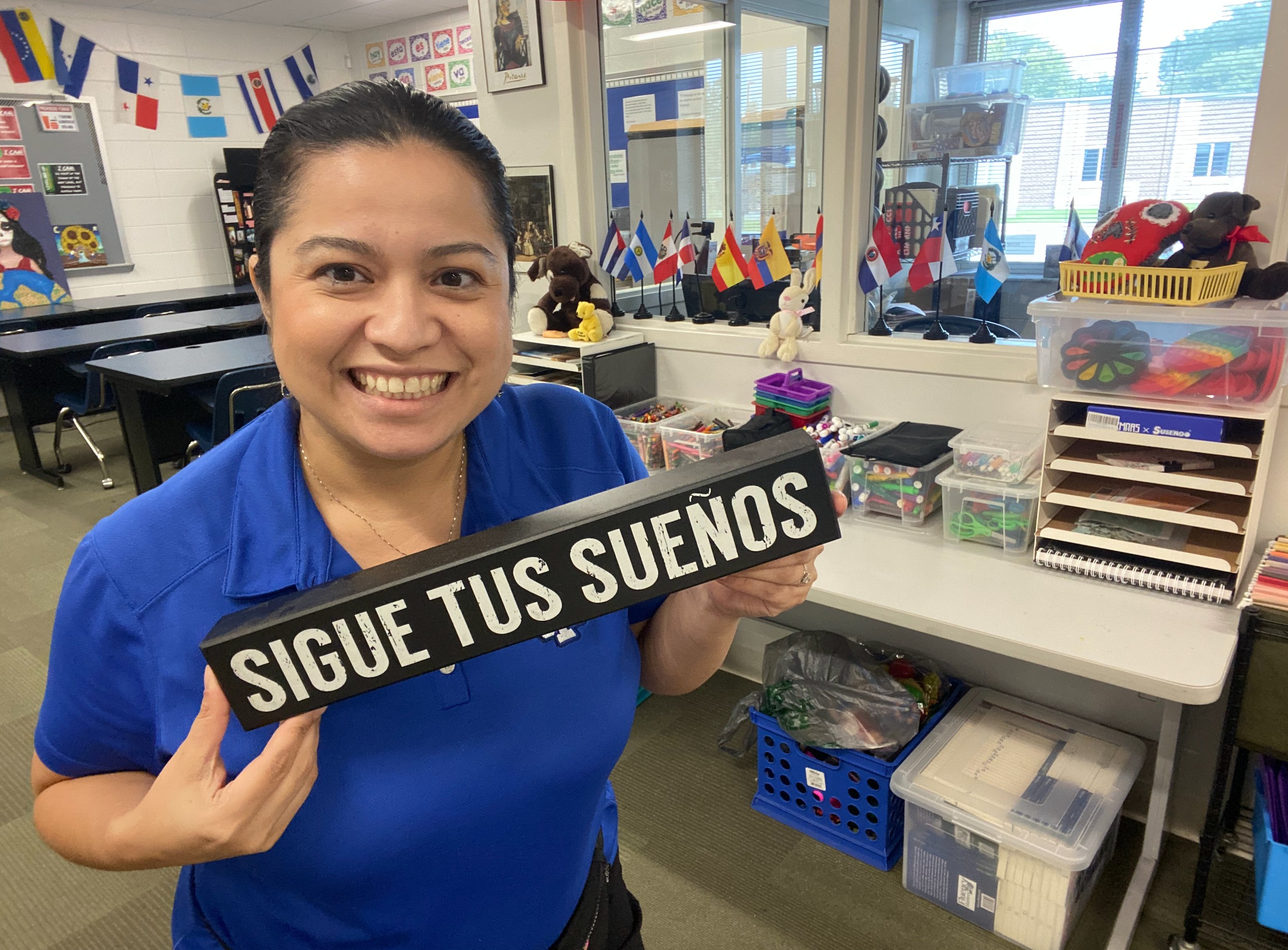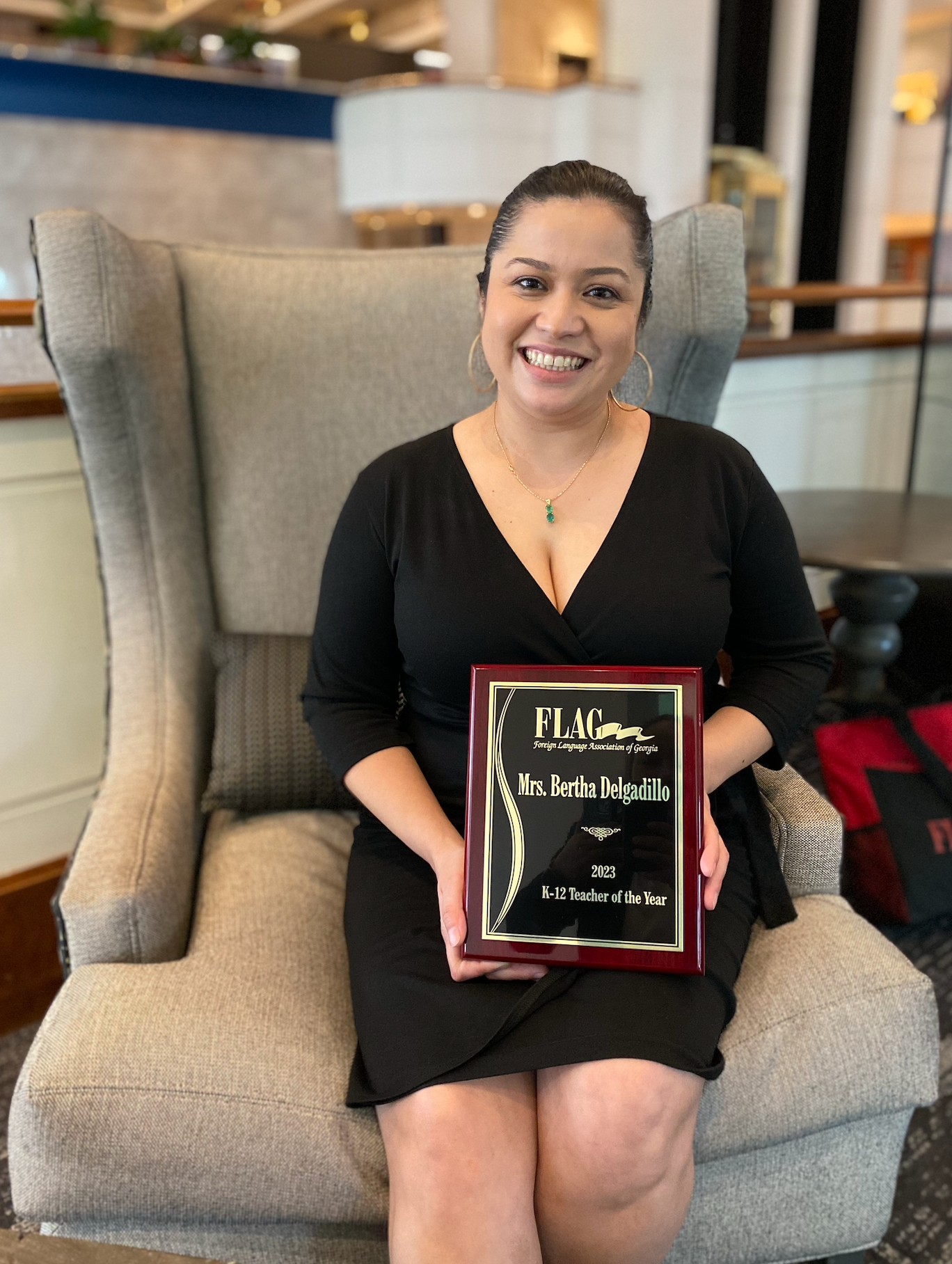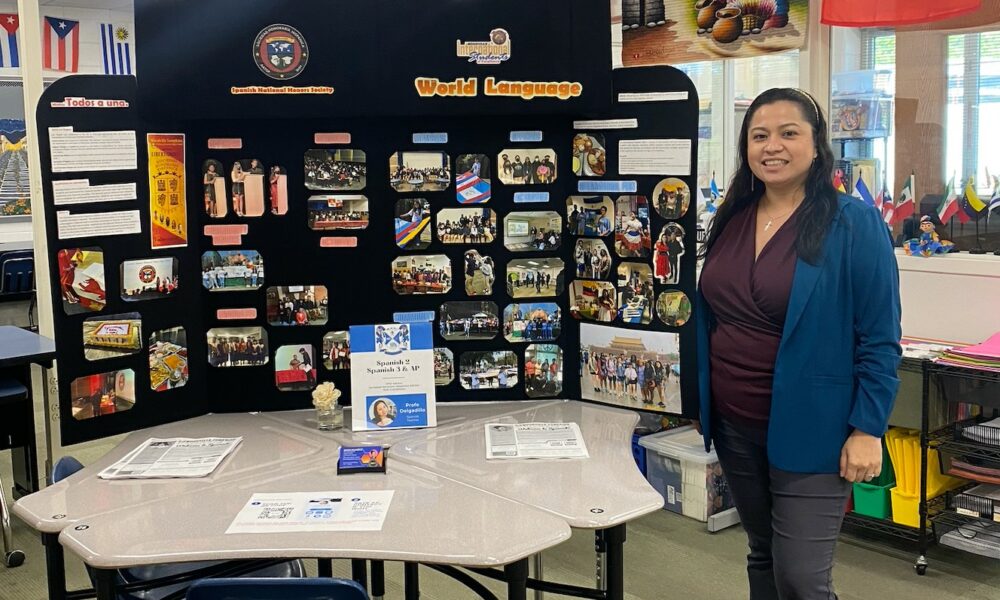

Today we’d like to introduce you to Bertha Delgadillo.
Bertha, we appreciate you taking the time to share your story with us today. Where does your story begin?
In the beginning, I thought I wanted to be a counselor, psychologist, or lawyer, but I really believe I have been called to be a teacher. Everything in my life always points to that truth. As a child, I enjoyed playing “school,” and of course, I was the teacher. I arrived to the United States at the age of 11 from Tampico, Tamaulipas, Mexico. Upon my arrival, I had no idea what it mean to be undocumented. It meant I wouldn’t be able to drive, leave the country to visit my family, and college became a nearly impossible dream. And college? Why would anyone want to go to college knowing that one might not ever have the chance to practice the profession? Though it seemed impossible at the time, I knew I wanted to go to college. However, it was my teachers who helped me maintain my dreams alive.
During my first two years as an undocumented student in this country in 1996, I often heard about the immigration raids in the agricultural fields nearby, and hearing about this made us live in fear for years. As I transitioned from middle to high school, I understood the politics behind immigration a bit more. At this time, I learned not to leave my hopes and dreams in the hands of politicians but rather to rely on my faith and hard work ethic to carry me through what seemed impossible. I also learned that it would be nearly impossible to attend college with my status unless I could afford out-of-state tuition. Teachers who were empathetic to my situation, the few to whom I felt safe to disclose my status, helped me keep my dreams alive by cheering me on, listening to me, and believing in me. This transferred all the way to my college years; I learned to work nonstop to achieve my goals and to surround myself with allies.
Today, though I work tirelessly to maintain a work-life balance, teaching high school Spanish is a large part of my identity. Having had to work all my life to prove my worth to earn a private scholarship and to show people on my path, I was worthy of becoming a United States citizen, I still often cannot stop working, and sometimes, even at the expense of my health. Currently, I enjoy reflecting and making changes in my practice to become a better teacher for my learners. As a conference enthusiast, I often share practices with language teachers nationwide. Because I am passionate about everything that has to do with world language education, I have to stop myself constantly. This is because I have experienced severe anxiety with how I tend to overextend my time with work-related matters.
I graduated and was ready to teach in 2006, but I could not start my career until 2013 due to my lack of status. The story of my upbringing and the people who were there to support me along my undocumented journey, mainly teachers and community members, is a source of inspiration in all the work that I do. In the past and the present, for many people who graduate from high school, college is the predictable next step, and though I wanted a college education accessibility, due to my lack of status, I grew up with truncated dreams and many odds stacked against me. All my life, I worked as hard as I had to achieve my dreams. I know many of my students see me as an example of success. As a result, I find myself with three main passions as a language teacher:
1) Becoming the best language teachers through giving the gift of a second or perhaps third language effectively,
2) supporting all students, but most especially advocating for Latino and undocumented students who often miss out on opportunities in comparison to other groups due to lack of support and advocacy, and
3) promoting social-emotional learning skills among my learners and colleagues.
When I was a senior in high school, I dreamt of pursuing a doctoral degree, but at the time, I could only accomplish as much as a Master of Education in 2008. From then until 2013, I had to do housekeeping and got paid under the table to make ends meet even though I had a master’s and there was a need for teachers in my field. In the summer of 2012, former President Obama signed the executive order Deferred Action for Childhood Arrivals (DACA), and it was then I was able to receive a work permit. This is why my career started in 2013.
During my first years of teaching, I quickly realized I had so much to learn about language teaching, so I focused on reading books, building my own library, and immersing myself in blogs for language educators. I also discovered then that conferences were a place to keep the passion for teaching ignited. I still knew I wanted a doctoral degree, but financially it was a nearly impossible goal because being a DACA beneficiary would have required me to pay out-of-state tuition even in my state of residence, as that has always been the law. I wanted to grow, but because a doctoral degree was not feasible, I started another path. I decided to pursue my National Board Teacher Certification, and I achieved it in 2020. Furthermore, along this life journey, I adjusted my status in 2017, and in 2022, after 26 years of being in the United States, I finally became a citizen of this country, so now, here I am, beginning a doctoral journey in a quest to become the best teacher I can possibly be. That is one of the beautiful blessings of teaching: learning never stops.
We all face challenges, but looking back, would you describe it as a relatively smooth road?
The biggest struggle I had to face was maintaining my dream of obtaining a college education alive in the midst of adversity. As an undocumented student, I had to pay out-of-state tuition if I wanted to attend a university. Also, every time there was a major setback along the way due to my status, I had to find the strength to get back up. Knowing that even once I received my degree in 2006, there was no guarantee of me being able to step into my profession due to my status, my faith and my teachers helped me kept my strength and dreams alive. I am glad I kept that persistence because it has paid off.
Thanks – so, what else should our readers know about your work and what you’re currently focused on?
I am high school Spanish teacher. I am also a teacher leader as I train teachers all over the country through workshops and conference sessions on teaching Spanish.
I am most proud of knowing that though I may not hear it often, I have made a difference in the lives of many of students beyond learning a second or third language. I am most proud of knowing that just like my teachers refused to see me let my dreams die despite the circumstances in my life, they always instilled hope in me, I now find myself with the opportunity to do the same. Teachers are dreamkeepers, and that is the biggest blessing in my profession.
We’re always looking for the lessons that can be learned in any situation, including tragic ones like the Covid-19 crisis. Are there any lessons you’ve learned that you can share?
Absolutely! As a result of COVID, I developed Generalized Anxiety Disorder, and I had to learn how to take better care of myself. Two skills I was lacking was giving myself the permission to rest and the ability to set boundaries even if that meant upsetting people in my life. I am still practicing these two skills to this day. Additionally, I make it a priority to see my therapists as needed.
Contact Info:
- Website: https://profesoradelgadillo.com/blog/
- Instagram: https://www.instagram.com/profesoradelgadillo/
- Facebook: https://www.facebook.com/profesoradelgadillo/
- Linkedin: https://www.linkedin.com/in/bertha-delgadillo-nbct-52200746/
- Twitter: https://twitter.com/profedelgadillo
- Youtube: https://www.youtube.com/channel/UCgQGV1d_hJHWwBV4CanuX_A
